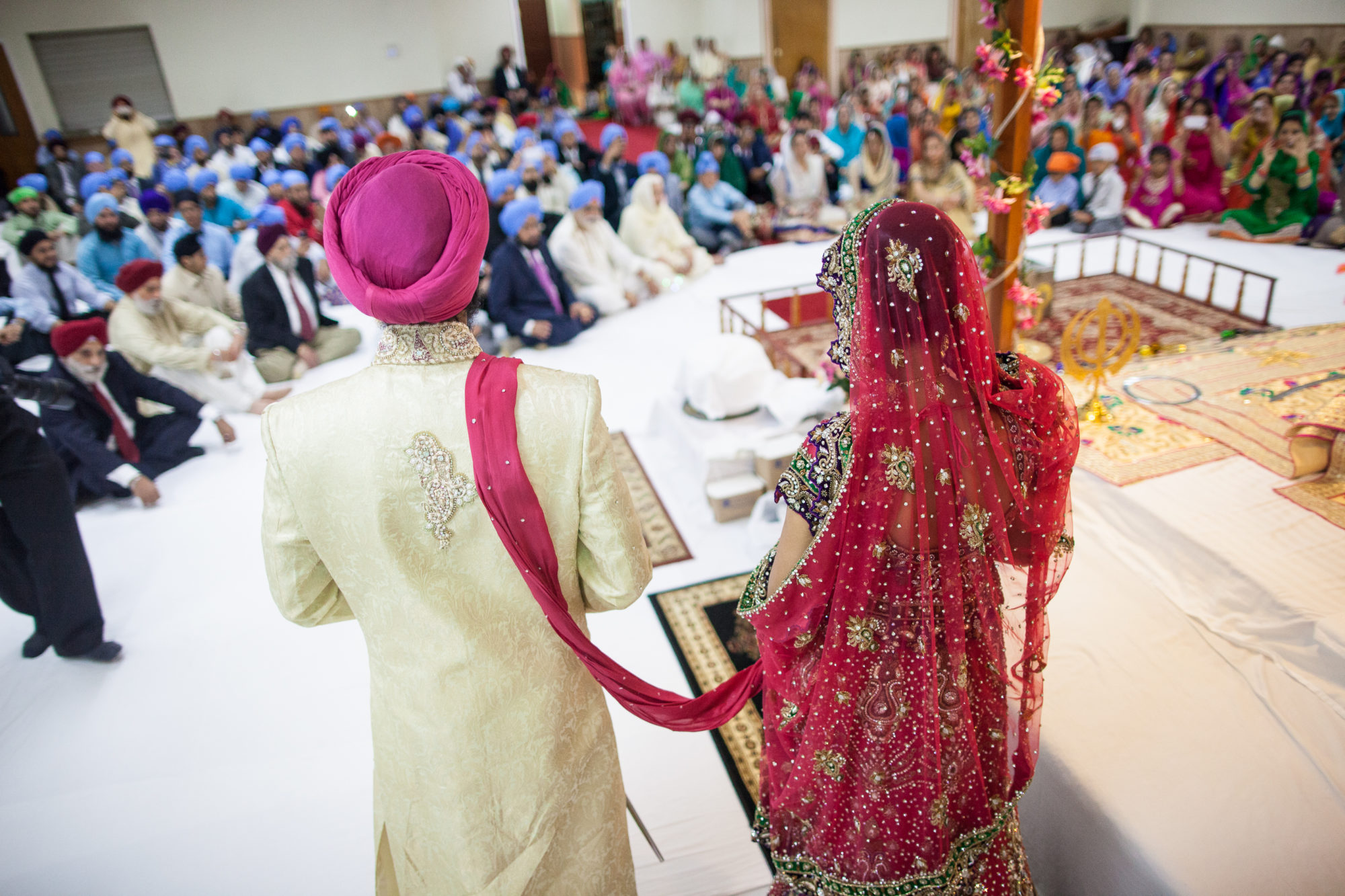by prabhdeep singh kehal
prabhdeep singh kehal (they/them) is a writer, community scholar, and educator. Passionate about social justice and Gurmat, prabhdeep shares their thoughts on the proposed laws targeting transgender communities. In part 1, below, they write about the bills, a Sikh perspective, and personal experiences. In part 2, prabhdeep interviews several Transgender & Queer Sikhs and showcases their challenges & hopes for our society and panth. They also share ideas on how allies can help.
Content note: Mentions of suicide & violence
Developing Context
As I write this, lawmakers in the current legislative session are fighting to institute laws that target transgender communities in no less than 21 states. As transgender youth, their families, and their extended communities fight for the right of transgender peoples to decide these matters for themselves, they have pushed against many taken-for-granted assumptions in US society. They confronted non-scientific and specific anti-transgender arguments of “two sexes” being created by a Divine, and arguments that conflate sexuality and gender to suggest all transgender people – and by extension all homosexual people – are lustful. In Arkansas, for example, Republican lawmakers specifically banned healthcare that was gender-affirming for transgender individuals after overriding their Republican governor, who recognized the law was governmental overreach. Gender-affirming medical care is the various sets of practices that include a holistic approach to promote the child’s physical development as consistent with their gender identity, which for some people includes using hormones to delay puberty. In other words, giving youth and adolescents, their families, and their doctors the ability to discuss the full range of medical care options that would best support the child as they grow. The legislators in Arkansas believe they know better than families and doctors and are choosing to regulate bodies, falling into their partisan legislative tradition of anti-abortion laws. In response, US professional educational communities and US professional medical communities (pediatric and endocrinologist, child and adolescent psychiatric, physician and psychiatric) have rallied to support transgender communities. As a result of these mobilizations, only three states (Arkansas, Tennessee, and Florida) have successfully passed these laws while other versions of these laws travel through states’ legislative committees for debate.
What is in the Legislation?
Even if transgender communities and their supporters are the ones specifically targeted, these laws do not only affect them because these laws affect how any person can engage freely in the public. For example, in Tennessee, lawmakers are targeting transgender communities through laws focused on businesses. Republican governor Bill Lee signed a law mandating that business and governmental facilities “post a sign if they let transgender people use multiperson bathrooms, locker rooms or changing rooms associated with their gender identity”. In the context of hostile, anti-transgender state policies, these legislators are taking the logic of identifying safe spaces for marginalized communities and turning it upside down. Rather than using signs to identify safe places for marginalized communities, these signs will operate as scarlet letters on businesses – identifying establishments who are betraying their commitment to maintaining a rigid gender binary in US society. In theory, this could be a wonderful act of solidarity when done collectively in protest, yet in practice, how many businesses would do this if they thought it would hurt their bottom line? To the credit of the Nashville district attorney, he has pledged to not enforce this law.
For the remaining states, the fight continues to not let these bills move forward as legislators are targeting the entire apparatus of support that transgender communities have built. A report from UCLA School of Law’s William Institute analyzed these laws and identified healthcare and schools as two common areas that legislators have focused on. In six states, legislators targeted gender-affirming healthcare, while in three states, lawmakers are effectively forcing school employees to inform parents if their child identifies as transgender, even if the child may wish otherwise. Yet as Tennessee legislators’ efforts indicate, anti-trans legislators are willing to be creative in regulating transgender people. For example, some lawmakers are specifically targeting insurance-related provisions for transgender peoples, while others aim to deny the right to change the assigned sex on one’s birth certificate, prohibit teaching about transgender people and related topics in schools, prohibit mandatory professional development about LGBT people and history, and “half of the bills forbid or even criminalize trans youth’s participation in school sports based on their gender identity” (emphasis my own). If such creativity and drive were focused on eradicating poverty in society rather than ostracizing and extinguishing transgender peoples from the public sphere and memory, we may create a world where all can thrive rather than the few deemed ‘normal’ by prejudiced legislators.
Sikhs in this Moment
But what does this have to do with Sikhi and Sikhs? There are a few ways to consider the ongoing legislation for Sikhs who live in the US (and by extension, what is now Canada and the UK). For some, they may already be familiar with historic fights for transgender rights and they do not want the government to continue marginalizing transgender peoples and their communities. For instance, Sikhs may recognize how these laws are part of an effort to remove transgender people from existence by targeting them at all ages and creating specific hurdles for them to succeed in the public.
For other Sikhs, they may feel entirely unconnected to these issues because they were unaware that lawmakers were doing this, or they may simply not “understand” the arguments that transgender communities are sharing. Yet, no one must be a perfect advocate to recognize the political scapegoating and targeting of an already marginalized community. For instance, Sikhs may be concerned that there are right-wing mobilizations behind these cookie-cutter copy-and-paste bills across states, as anti-trans legislation has spread due to coordination by conservative groups, such as the Heritage Foundation, Eagle Forum, and the Alliance Defending Freedom (a designated hate group). Since when have western notions of femininity and womanhood been sufficient to contain the beauty of Sikhi? Familiar with our own experiences of hate-based violence in the US and our histories of the state targeting Sikhs, these anti-transgender bills should raise alarms for US Sikhs.
Finally, some Sikhs may be actively supporting these laws because of an ideological interpretation of Sikhi that denies transgender people’s existences. They may think that transgender Sikhs are not following Hukam when they consider gender-affirmative health care. Or, they may not “believe” what activists, researchers, and scientists are have found: providing the option of gender-affirmative healthcare saves lives (review the American Medical Association’s Journal of Ethics in 2010 regarding puberty blockers and in the American Academy of Pediatrics’ Pediatrics journal in 2018 regarding mental health). Yet for Sikhs who state that they want to live in an egalitarian society, this includes enabling people – including transgender people – to live their lives in peace. Sikhs never have to wholly understand another community’s identities in order to reject unconstitutional governmental action that is targeting a marginalized group of peoples. This past year, the Kisaan-Mazdoor Andolan rose up because a government instituted laws that targeted a specific group of people – and Sikhs collectively fought back with other communities. When we do not fight back, we collectively rationalize a governmental system and legislative process that lets lawmakers single out specific, individual communities and target them for harm while blocking any resources that would help them.
The general silence I observe from Sikh communities today on these issues reminds me of moments of when I was younger and looked for support among Sikhs as a queer kid who felt out of place in their body. When I looked for support when I was younger, I went from one wall of silence to the next; no one wished to name my siblings and mine’s existences except to target us. In fact, it was an uncle who stood up at the podium in California to declare that Sikhs should stand against marriage equality in 2008. And when I could not find a supportive Sikh sangat, I left Sikhs and found Sikhi. Guru Sahib brought me to Their message in Raag Jaistree (Ang 697). Guru Sahib led me to:
ਜੈਤਸਰੀ ਮਹਲਾ ੪ ॥ ਸਤਿਗੁਰੁ ਸਾਜਨੁ ਪੁਰਖੁ ਵਡ ਪਾਇਆ ਹਰਿ ਰਸਕਿ ਰਸਕਿ ਫਲ ਲਾਗਿਬਾ ॥ ਮਾਇਆ ਭੁਇਅੰਗ ਗ੍ਰਸਿਓ ਹੈ ਪ੍ਰਾਣੀ ਗੁਰ ਬਚਨੀ ਬਿਸੁ ਹਰਿ ਕਾਢਿਬਾ ॥੧॥ਮੇਰਾ ਮਨੁ ਰਾਮ ਨਾਮ ਰਸਿ ਲਾਗਿਬਾ ॥ ਹਰਿ ਕੀਏ ਪਤਿਤ ਪਵਿਤ੍ਰ ਮਿਲਿ ਸਾਧ ਗੁਰ ਹਰਿ ਨਾਮੈ ਹਰਿ ਰਸੁ ਚਾਖਿਬਾ ॥ ਰਹਾਉ ॥
satigur saajan purakh vadd paiaa har rasak rasak fal laagibaa || maiaa bhuia(n)g grasio hai praanee gur bachanee bis har kaaddibaa ||1|| meraa man raam naam ras laagibaa || har ke’ee patit pavitr mil saadh gur har naamai har ras chaakhibaa || rahaau ||
Jaitsree, Fourth Mehl: I have found the True Guru, my Friend, the Greatest Being. Love and affection for the Guru has blossomed forth. Maya, the snake, has seized the mortal; through the Word of the Guru, the Guru neutralizes the venom. ||1|| My mind is attached to the sublime essence of the Guru’s Naam. The Guru has purified the sinners, uniting them with the Holy Guru; now, they taste the Guru’s Naam, and the sublime essence of the Guru. ||Pause||
While everyone else gave me silence, I had found a friend. Having let this shabad and my relationship with Guru Ji grow me with over the decades, I eventually started keeping my hair and dastaar – now Sikhs could not wait to celebrate and claim me as a Sikh, while before they only claimed my negation. I began to change how I understood my sangat’s silence and targeting. I realized we are wedded to processes of collective self-dehumanization of others because we are afraid of building Begumpura (a place free from pain and sorrow). We still accept how this world has been given to us and have not asked questions about how we got to this present condition, contrary to our Guru’s teachings. Now, instead of feeling pain from the silence, I approach moments like today – where transgender peoples are being specifically targeted because the present world refuses their existence – as opportunities for us to end our investment in this world’s processes of dehumanization and create anew.
I wish I had gone up to that uncle as a youth and told him how sorry I was for him. Asked him who hurt him. Asked him why he was so scared that he felt the need to tell everyone else that people like me were the problem and not the world we inherited. Yet, my sangat’s silence, inaction, and constant statements of equality with no investment in equality was what let my sangat believe that me and my queer and trangsgender siblings were not worth the fight. That we could leave, and our departures somehow made them better Sikhs. My own sangat was not “backwards” or “not modernized” or “not progressive” or whatever other colonial designation from this world one wants to give them; they were still living in fear. The same fear of which that baani in Jaitsree reminds us. It is fear of violence, fear of exclusion, and fear of being made lower than that binds us to continued dehumanization of ourselves and others rather than collective freedom from violence. Now, I change my actions to ask how I can cherish others through the Guru while also being immersed in Gurbani to not operate from this place of perpetual fear.
Be sure to read Part 2 where prabhdeep interviews several Transgender & Queer Sikhs and showcases their challenges & hopes for our society and panth. They also share ideas on how allies can help.
About prabhdeep

prabhdeep (they/them) is a writer, community scholar, and educator (and Kaur Life Board Member!). As a sociologist and doctoral candidate at Brown University, prabhdeep researches how people and communities make knowledge about race and racism, and how they use this knowledge in their lives. In their academic work, they broadly question how colonialism persists within US higher education and, specifically, how these ideas about race are used in the processes of hiring, promotion, and defining merit (what counts as good) in academia. prabhdeep’s community-based work focuses on working with others within the global Sikh diaspora to identify and fight how white supremacy, anti-queerness, and gender conformity emerge in our lives. At Kaur Life, prabhdeep will be using their training as a historical and cultural sociologist, along with their Gurmat-based practices of Sikhi, to foster transnational conversations on gender, sexuality, and casteism, and the intersections therein.





No Comments